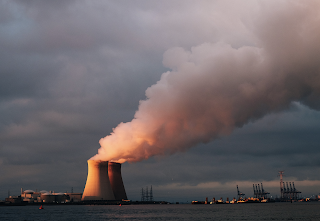By Nicholas Zalewski, EUC Research Assistant and European Union Studies MA StudentThis past October, the European Union Center hosted an online panel, “The New Speed of Politics: Is Gender Equality Accelerating or Shutting Down?”, that brought together Maria Gabriela Zoana and Helga Varden to explore how politics and academia can come together to assess and advance gender equality in today’s world. Maria Gabriela Zoana is a Romanian Former Member of the European Parliament with expertise on questions of gender equality. Helga Varden is a Professor of Philosophy and Women and Gender Studies at the University of Illinois and a philosopher who has worked on feminism, ethics and law. The panel was moderated by Isabel Molina-Guzmán, Professor of Latina/Latino Studies and Associate Dean of Diversity & Inclusion, College of Liberal Arts & Sciences at the University of Illinois. This event was part of the #JMintheUS event series, an initiative of Jean Monnet Centers in the U.S.
Zoana began by discussing the progress that has been made in the European Union towards gender equality. While there are still more men than women in the European Parliament, the gap has significantly shrunk. In 1979, only 16 percent of the members of the European Parliament were women. In 2019, 41 percent of the members of the European Parliament were women. Zoana noted that some member states have more female MEPs than other member states — for instance, Cyprus has the worse gender gap, with all six of the MEPs representing Cyprus being men. Belgium and Germany are two Western European countries that have a significant gender gap as well. On the other hand, Austria, France, Lithuania, the Netherlands, and Slovenia have achieved a perfect 50 percent ratio. This shows that not just one region of the EU needs to work on encouraging women to become involved in EU politics, but member states across the continent.
Zoana acknowledged how difficult it is to achieve a perfect gender balance in the European Parliament. Part of the challenge is still getting women involved in politics and running for office. Another issue is that if women are not senior members of a political party and the party does not win enough seats, then fewer women of that political party will become members of the European Parliament. At the same time, it is unacceptable for a member state to have no female members in the European Parliament.
Molina-Guzmán asked how intersectionality plays a role in the discussion of the problems women faced in the European Union. She wanted to know if any data was available regarding the problems that minority women, female refugees, and female migrants face in the European Union. Zoana discussed how 55 percent of women born outside the European Union are unemployed and only 60 percent of Roma women are employed. Overall, over 70 percent of women in the European Union are employed.
Varden spoke positively about how there is more work in gender studies coming from women of different cultural backgrounds and sexualities. She mentioned how crucial it is for EU institutions to help all women not only become employed, but also become successful and reach their individual goals. It is necessary to help women becomes successful so they can in turn help bring their own perspective to the decision-making processes within the EU.
In the future Zoana hopes that the European Union will push women to go into a wider variety of fields. One example is the tech industry. Currently women only make up 22 percent of the tech field. She thinks that some sectors such as construction will be challenging to get more women involved in due to the fact that many positions are physically demanding; however, women can learn how to code. Zoana believes that more needs to be done to show girls in school that there is a future for them in the tech industry. She cautions that she does not want to add pressure to girls to pick the tech industry for their career aspirations, but simply expand their options past the traditional options. She also hopes that the 11-percent employment gap between men and women will close in the European Union.
Watch the full panel discussion below:











